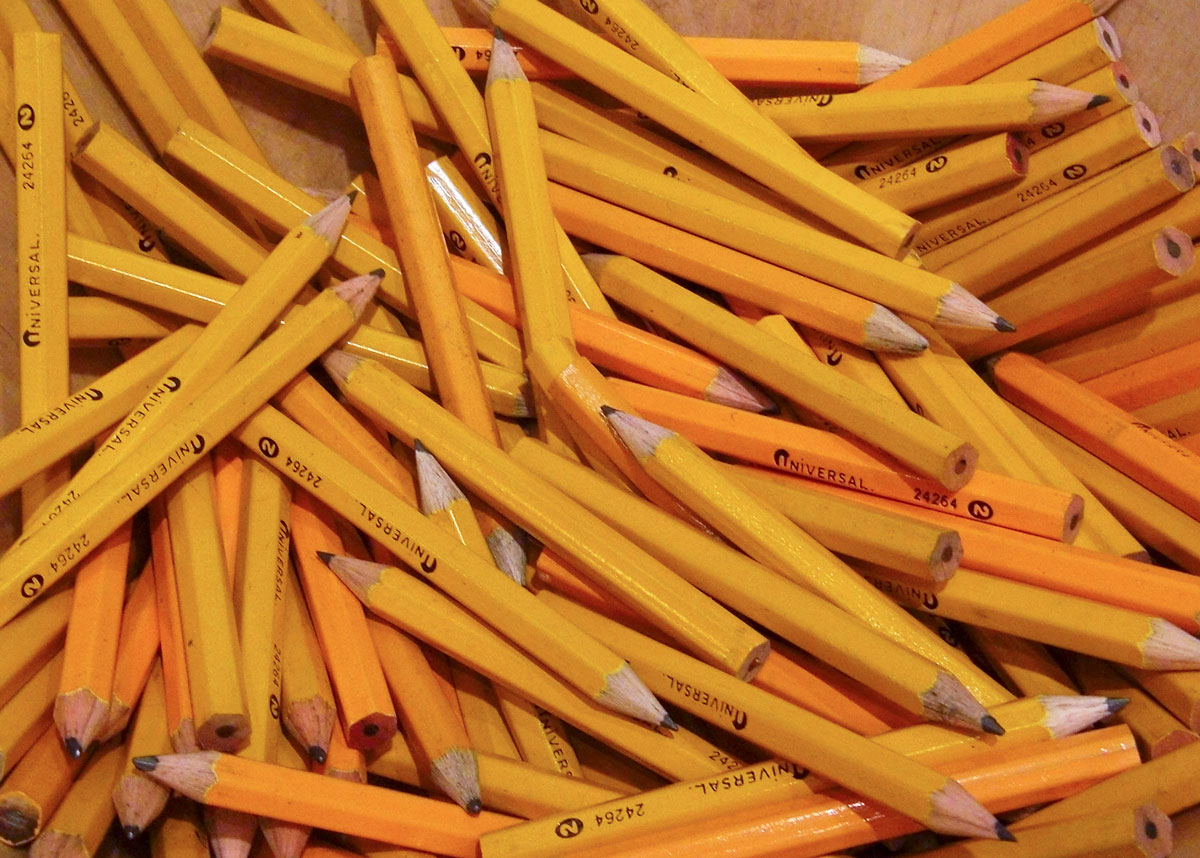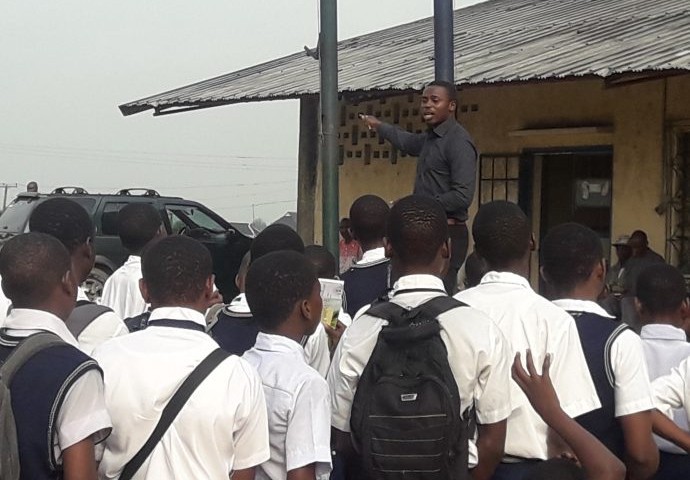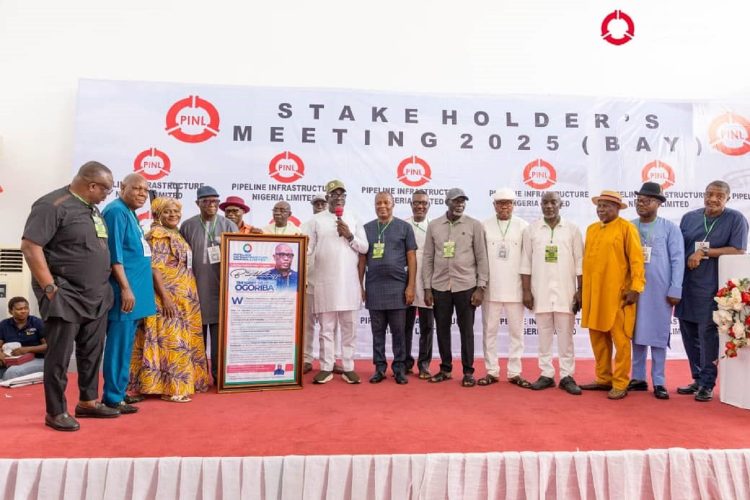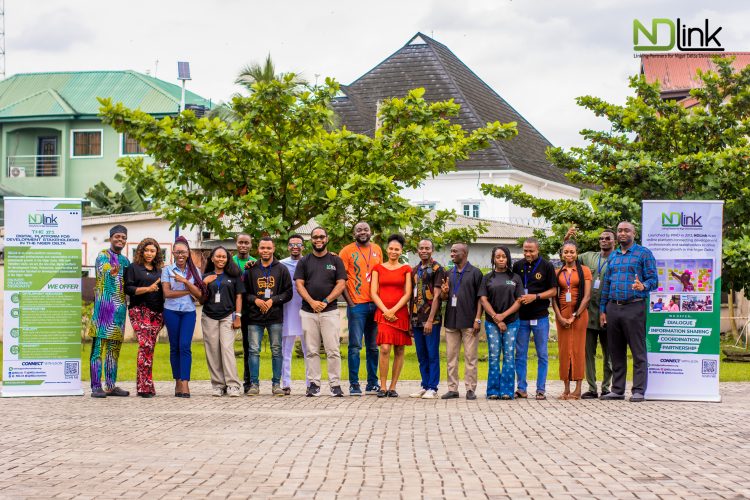
Book Review: A Life called Forever
January 12, 2018
Akwa Ibom Govt: Over 2 million pencils sold in 1 year
January 15, 2018
by Ibeleogute Ibodeng
I have heard people lament about how education is boring, strenuous and less useful to the current realities of the times. What I find erroneous in this conclusion is the manner at which education is perceived. Education is often perceived as an event – a phase where you go to school, graduate, get a job and never open a book again. But education is not just an event. It’s preparation for life. In fact, Education is life itself and I cannot find a worthy alternative to it. It is a dedication to the Principle of CANI- a concept formulated by the motivator Tony Robbins to mean “Continuous and Never-ending Improvement”.
I once watched a video by the famous entertainment mogul called Sean Combs also known as ‘P-Diddy’ where he made a statement about education that piqued my interest. He said, “We have to prepare our kids for the realities of what’s out there in the world. We have to prepare them to be leaders! As a community(and permit me to add nation), if we don’t update our curriculum, then our children will always lag behind. You can’t make money if you don’t have quality education. So instead of talking about it, something about it!” This statement reignited my resolve to take responsibility and do something in my community that will enhance the quality of education in our schools. However, I have come to understand that there’s a huge vacuum in the inner cities and small towns, low income and public systems that are grossly inadequate.
Since 2015, I have been committing my time to promoting quality education for sustainable development in public schools and I must say that it’s been an interesting learning curve. Being in the business of character building and youth reformation has exposed me to quite a lot of behavioural patterns and activities. Barely a month ago, I carried out sensitization programmes in schools in Port Harcourt. While doing this, I made a few observations which is the key reason why I’m writing this article.
_____
Have you also read?
Opinion: Why dreadful viral diseases are now upon us
Book Review: A Life called Forever
Nigeria Ranks 114th on Global Human Capital Index
_____
Let us establish one fact, the lifeblood of education is funding.
But I would also like to add the importance of vision and will power in the sustainable development of the education sector. If a country is really serious about it’s future, it would not relegate its education sector. The key driver of globalisation is competitive and comparative advantage. Without a doubt, one of the ways nations compete against themselves is in the quality and standard of education they are able to provide their citizens. The United Nations states that for a nation to have sustainable growth in its economy, that nation must invest 26% of its Gross Domestic Product to education and 15% of its budget in health. The issue of health is a subject matter for another day. But as a nation, if we can attain this, then I don’t see why we would we would not move forward in leaps and bounds. The monetary resources has always been available. What we have always lacked is visionary leadership.Another issue is the perception of students in the public school system. As you read this, I want to you take note of the following facts- Not all slum children, inner city or public school children are slow learners. Secondly, not all teachers in the public schools should be in the classroom, not because they are not certified, but because they lack the empathy, compassion and creativity to transfer ideas to their students. In agreement to what Larry Cuban highlights in his book “Making a Difference: Teaching in the Inner City, I believe that teachers have a special license. As a teacher, your job is to teach- to teach with all the difficulties in mind, to try to compensate for the handicaps of the students. If a teacher is indifferent to the academic achievements of their wards or lack of it , they will continue to be indifferent, for their poor environment and minority group status are not their fault. Nor is it yours. But it is your responsibility to plan your work with these facts in mind.
Knowledge of poverty and deprivation in inner city area or location of public schools can be easily disguised as the reason why teachers do nothing. Some of them will lament that the conditions the youngsters live under are so terrible and as such, they cant expect them to perform their duties effectively as teachers. I notice that teachers in public schools display apathy and abandon the system because they consider the children unreachable and unreachable, feel the school structure is ineffectual to cope with problems and also since their personal inadequacies to impart knowledge.
Another issue impeding the growth of the education sector is mostly tied to the poor drive and desire in effectively developing the curriculum to correlate with modern-day realities. In the education system, not many people are interested in the real problems of the outside world. Rather students are tasked with deciphering what the teachers regurgitate to them. More like the garbage in, garbage out effect which has drastically reduced the creativity of students in public schools. Interestingly, the teachers do the same with the principals. Principals with supervisors and supervisors with the state’s basic education board. You might wonder how? Well, since there is little faith existing among the members of the system, school personnel at every level tend to centralize authority in their own hands. Thus, it becomes natural for the supervisors not to allow his principals to make up their own syllabus and for the teachers not to allow students to choose their own readings or interests. What this does is to stifle the ability to reform the system from within and this nourishes rigidity. It is this rigidity that also affects the way and manner curriculums and instruction materials are effectively developed to solve modern day problems.
Fundamentally, curriculums are a planning and design issue. It shouldn’t be monopolized or organised by policymakers who don’t have a clue of what the internal workings of the school system is about. Curriculum development should be a collective effort, that is teacher, administrators, experts, legislators, the community and let’s not forget, the students (through the representatives) have to decide what is to be taught. Government and policymakers in the education sector should be receptive to bright ideas from individuals and groups who have the requisite skills, concept and innovative methods to develop the education sector.
Having attended a public school for my junior secondary education, I must say that there are some things that haven’t changed even till date. Separating theory and practicals have always been a major obstacle in the school system. Sometimes, there is so much emphasis on theory that students come out of school armed with the knowledge they were never taught to apply. They come out mostly not independent and bereft with the ideas necessary to live in the ever-changing complex world. I visit public schools often and I notice that there are no ICT centres where they can learn basic computer knowledge. So I wonder how they will cope with this fast-paced and highly digitized world. If at all they have a computer in their schools, rarely would you find an instructor who can teach students practical 21st-century computer skills like debugging and coding. These are privileges enjoyed in the private schools. But if we truly want to sustainably develop our society, then we must extend these privileges to the public schools too!
Our philanthropists should make more concerted efforts on promoting education for sustainable development. The Andrew Carnegie Library in the United States is a gift from the Carnegie family ( a family renowned for making so much money from steel production) because the business tycoon had a deep love for knowledge and he made efforts to support the government in promoting a reading culture. As a society, we should learn to prioritize sustainable initiatives. The dependence on government alone to solve our educational problems is an exercise in futility. A writer once said,“the schools are failing the children, that is why the children are failing in school.Therefore, to change children, the school system must change.” To ensure this, we need more solution providers to make this a reality.
To young person out there who believes they have what it takes to develop their society; you are the solution provider the world is waiting for. There is no better time than now for more social entrepreneurs to come out and aid the government to proffer solutions to the dearth in the school system.They must realise that they have a responsibility to make the world better. There are opportunities lurking everywhere for young people to maximise their gifts and solve problems around them. There are scholarships, grants, fellowships, schemes and other avenues where they can learn, earn and give back to their community. On the first of January, a young lady called Naomi Aliyu Ekpoki was the star prize winner for the Future Africa Leaders award(organised by the Loveworld Christian centre). Her prize money was 35,000 dollars.
There are many other opportunities out there. All you need to do is seek out opportunities to engage, document your strides and keep making progress. Have a purpose driven life. Discover the problem you were born to solve. This is what makes the pursuit of happiness worthwhile. But remember, having a purpose is not enough. Creating a sense of purpose for others is what truly matters. In everything you do, let self- education and the enlightenment of others be your watchword.
_______________
Ibeleogute Ibodeng is a Journalist and Sustainable Development Goals (SDG) advocate based in Port Harcourt, Rivers State
Disclaimer: The opinions expressed in this article are those of the author not of NDLink









